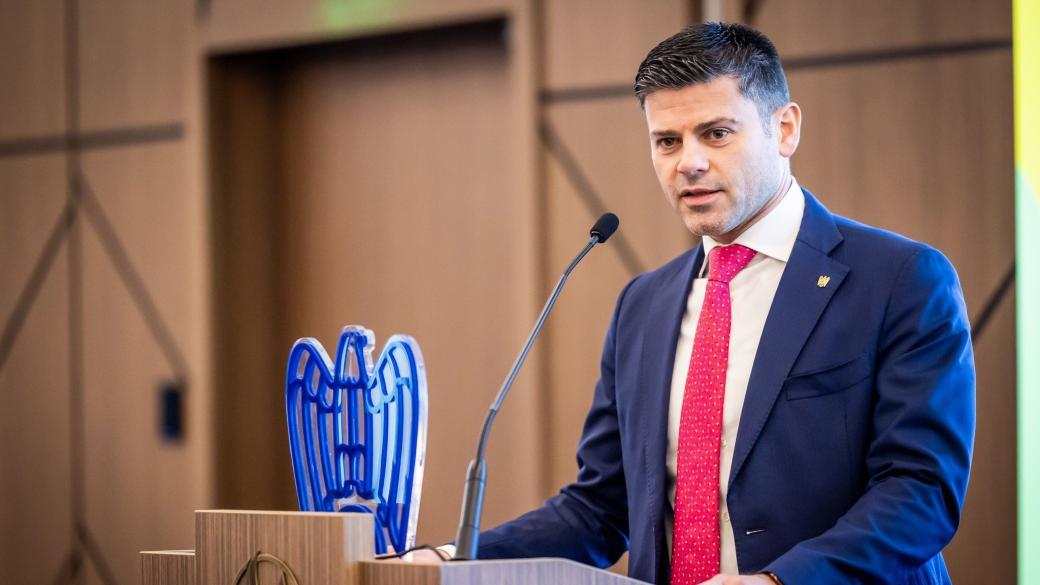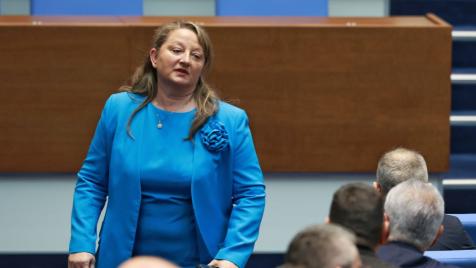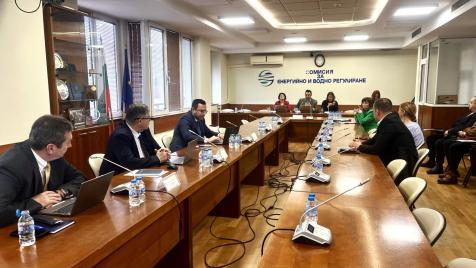Interview | Italian businesses expand their investments in Bulgaria
Work is underway on an intermodal terminal worth around 2 billion euros, which will connect Bulgaria with Northern Italy

© ECONOMIC.BG / Confindustria Bulgaria
Roberto Santorelli is the president of Confindustria Bulgaria, an organization which unites Italian entrepreneurs in Bulgaria. He is a member of the Italian Chamber of Commerce in Bulgaria, the Confederation of Employers and Industrialists in Bulgaria (KRIB) and the University of Food Technology in Plovdiv.
He received his higher education at the Luiss Guido Carli University in Rome. His professional qualifications have grown over the years after completing the London Stock Exchange Group's ELITE training programme.
In 2009, his life's journey brought him to Plovdiv, Bulgaria, where his family business is engaged in fruit growing and processing activities with a significant production exported to 35 countries.
In mid-April, Confindustria Bulgaria organized an international conference called "ESG and Global Goals: practical guidelines for companies".
Mr. Santorelli, in your observations, how do Italian businesses in Bulgaria accept the ESG concept and what steps are they taking to implement it?
Italian businesses in Bulgaria easily adopt the ESG concept because it is already quite developed in Italy. For years, large enterprises have been preparing sustainability reports and demanding this from their suppliers, who are mainly small and medium-sized companies. Italian companies in Bulgaria are already ready for these requirements because they do meet them there and are starting to meet them here as well.
What investments are Italian companies making in Bulgaria?
A lot of companies are investing in solar parks that they build on their premises, and what they're doing thus represents investing in a circular economy. They are also very interested in internal staff training. Confindustria Bulgaria is currently participating in an international project for artificial intelligence, which will monitor the AI competencies in the private sector and help to develop them. This project will be used by companies for additional training of their employees.
The introduction of the so-called ESG reporting in Bulgaria and the transposition of the CSRD are pending, with the amendments in the country’s Accounting Act. What challenges do businesses face in this regard?
Whenever there is something new, companies worry. But in reality, this is not something new, because it has existed in Italy for a long time. That's why we're organizing this conference – to prove to companies that tracking ESG metrics is important to the company itself. The point is not to report just because the law requires it. What is important is that when a company starts an initiative, it should think about how it affects the environment, employees, society and the company itself. This is most important because it is the only way you can be sustainable as a business. We see this very clearly with the employers’ complaints about the shortage of certain specialists – creating them can’t happen overnight. That’s why companies need to invest in training. Innovations are very quickly adopted and if we do not keep close relations with universities and schools, we cannot expect to have well-trained personnel.
Do you have any comments on the proposed amendments to the Accounting Act?
None at the moment. We are waiting for the new government to see if they will make some changes or decide to accept them as they are.
It seems that the Italian presence in Bulgaria has been growing in recent years. Is there interest from potential new Italian investors in Bulgaria and, if yes, what fields are they mostly coming from?
What we have noticed in the last two years is that the very companies that began investing here years ago are now expanding. In this way, Italian investments are also increasing.
And are there new investors who are considering Bulgaria?
There is one study, but we will see if it will be realized as a project. A major investment that will be put into operation is the photovoltaic panel plant near Yambol.
What are the biggest concerns of potential investors?
The biggest concern of potential investors and of those of us already here is the political instability. If there is a stable government, one can talk and discuss plans for the future. If not, the modus operandi is constantly changing, and companies cannot plan. This is a serious problem, and I don't know if it will be solved in any way with the coming elections.
Bulgaria is already (half-way) in Schengen. This seems to be a great advantage for Italy since a third of Bulgarian exports to that country are by water.
Yes, the current trade exchange between Bulgaria and Italy is about 3.5 billion euros. Indeed, the fact that you are already in Schengen makes transport a lot easier, even though Bulgaria is not fully in Schengen. This greatly facilitates the transport and movement of goods. This also has a good effect on tourism.
Could this half-way Schengen membership be an incentive for potential investors?
It probably is a facilitation, but the biggest incentive would be political stability, which in turn is also related to gaining full entry into the Schengen area. Investors want to invest in a stable country. On the other hand, the fact that goods can move faster is very important. Years ago, we had an Italian company in Ruse that wanted to expand its production, but because of the overcrowded bridge between Bulgaria and Romania, they preferred to go to Romania. That is why we often talk to the Bulgarian Ministry of Regional Development to push for a second bridge near Ruse because this is important for investments.
We are also working on an intermodal terminal project. The idea is to connect Northern Italy with Bulgaria and then from Bulgaria to reach Eastern Europe. This project includes rail, sea and land transport and requires investments from the governments of Italy and Bulgaria, and private investors. We want this to be a public-private partnership.
How much would this project cost?
According to rough calculations, about 2 billion euros.
Translated by Tzvetozar Vincent Iolov

 Antoniya Simova
Antoniya Simova 
